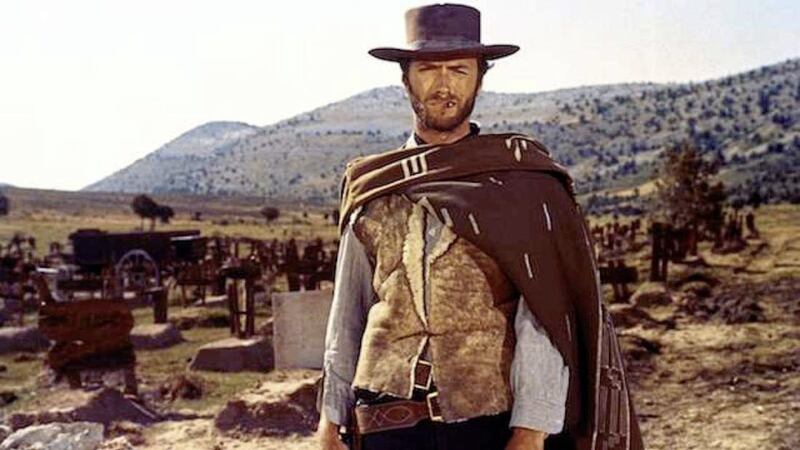AT this time of year, we tend to pause and take stock of where we are economically. And when it comes to 2018, it would be tempting to view things through the prism of Western movies.
There has been much good and lots of bad, over the past 12 months, and when it comes to politics, no shortage of ugly. We also see the UK Prime Minister currently acting as a bit of a lone ranger trying to get her Brexit Withdrawal deal through the UK Parliament.
Meanwhile, Northern Ireland has benefited from a cash injection when the DUP emerged from its confidence and supply arrangement with the Tories holding a fist-full of dollars. But the Mexican stand-off in local politics has left us not-so-much lawless, but certainly leaderless and in need of someone to lay down the legislation.
Indeed, traditionally the global economy has been viewed through a western lens - that is through the eyes of the western world. However, this perspective has become increasingly outdated as the centre of economic gravity has shifted. And to understand the global economy in 2019, we need to recognise the implications of this change.
The Economist has calculated where the geographic centre of the global economy is - taking an average of each country's longitude and latitude, weighted by their GDP.
At the peak of the US's dominance in 1950, this geographic centre lay in the North Atlantic - just above Iceland. However, the rise of Asia - notably China and India - has pulled the geographic centre so far east that it now sits in Siberia. The changing spread of Invest Northern Ireland's office footprint reflects this shift, with the organisation now being represented in places like Shanghai, Hong Kong and Singapore, where once their global presence largely amounted to offices in just the US.
Indeed, since 2008, 45 percent of the increase in world GDP has been down to China. Some would say that China has quietly gone about taking over the world since the global recession.
Looking at the world through a more Eastern lens, changes our perception. For instance, it gives us a completely different perspective on the issue of poverty, and a more positive story emerges. Whilst in the western world, homelessness, the squeezed middleclass, and the rise of foodbanks have been to the fore, the reality is that global poverty has been halved in the last 20 years. Looking at China in particular, 750million people were in extreme poverty in 1990; today that figure is less than 10million people. More people in the developing world have access to electricity, telecommunications and disposable income than ever before. India now contributes more to global growth than the UK, Germany and France combined. Indeed India is on course to displace the UK as the fifth largest economy this year. It's no coincidence that Bollywood movies now out-gross Western movies significantly at the box office.
In 2019, the direction of travel will continue to be eastwards. One of the things we are going to have to do is to pay more attention to the politics of the east. China for instance has published a strategy - 'Made in China 2025' - which outlines the share of the global market it is targeting (rather than simply growth per se). This identifies 10 key sectors including aerospace, robotics and clean-energy cars. The Chinese are effectively telling the west that they want to steal their lunch. And in many respects, this is what's exercising US President Donald Trump and fuelling his talk of trade wars. Germany too is concerned that China is aggressively moving up the high-tech value chain faster than expected.
Politics in the west has been ugly over recent years, but politics between the west and east has the potential to become uglier too. China has used its increasing economic might to build influence around the world - investing in infrastructure in places like Brazil, Sri Lanka and Australia. The increasing economic superpower has embarked upon a trillion dollar 'Belt and Road Initiative' (BRI) which has been dubbed the Chinese Marshall Plan. This scheme, which includes 71 countries, and accounts for half of the world's global population, aims to invest in roads and shipping lanes connecting Africa, Asia and Eastern Europe. Meanwhile, China's military power is being flexed in the South China seas, and is arguably keeping North Korea's Kim Jong Un in check.
China's influence in Northern Ireland has even grown, with a number of Northern Ireland firms now being Chinese-owned, including SDC Trailers and Thompson Aero. China has also set up an Asian Infrastructure Investment Bank (AIIB) in an effort to rival the World Bank and IMF. And we may see China, with its Renminbi, challenge the prevailing position of the US Dollar as the global reserve currency.
If we consider the outlook for the world in 2019 through a western lens, what we see is protectionism and political turbulence. If we consider it through an eastern lens, what we see is expansion, growth and rising prosperity. The challenge for economies and companies is to make sure they tap into the rise of the east. From Northern Ireland's perspective, China must no longer be seen just as a source of cheap imports, but rather a source of high-value visitors and potential investors, as well as a lucrative market to sell our goods and services. Those that get it right could be in for a Bonanza.
:: Richard Ramsey is chief economist at Ulster Bank.
Next week: Paul McErlean








